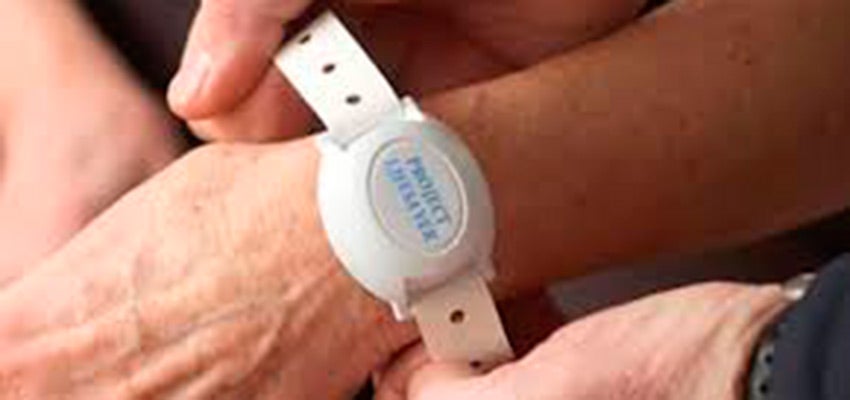Pilots pay for more Project Lifesaver training
Published 12:11 am Saturday, July 29, 2017

- Project Lifesaver provides tracking bracelets for those who are prone to wander as a result of dementia or brain injury.
The Pilot Club of Andalusia and the Covington County Sheriff’s Office has again partnered to expand their knowledge of Project Lifesaver.
Sheriff Dennis Meeks said on Friday that the Pilots donated $1,500 for training in Project Lifesaver. The classes are scheduled next month.
Project Lifesaver is a 501(C)(3) community based, public safety, non-profit organization that provides law enforcement, fire/rescue, and caregivers with a program designed to protect, and when necessary, quickly locate individuals with cognitive disorders who are prone to the life threatening behavior of wandering. The organization was founded in 1999 in Chesapeake, Va. The necessity of this program was determined through the correlation between cognitive conditions and the act of wandering. With the dramatic increase of cognitive conditions since the inception of the organization, the program has grown from a localized program to a program recognized internationally as a proven and effective method of “bringing loved ones home.”
Meeks said the sheriff’s office will send Lt. Howard West and Lt. Alan Syler to training.
“They are coming out with some new stuff, and we hope to get the training on that,” he said. “There is some new technology.
West said there is new technology that established a perimeter in addition to the bracelets and alerts caregivers if the person has gotten outside of the safety zone.
He hopes that technology can be added to the local program in the future.
Meeks said that he wanted people to understand that they do not track or monitor people’s locations using these devices.
“If someone wanders off and the caretaker calls 911, we have the equipment to locate them, if they have the Project Lifesaver bracelet,” he said.
So, far Meeks said they have not had to use the Project Lifesaver. “I hope we never have to,” he said.
The service is absolutely free to anyone who has a family member or friend who has dementia, Alzheimer’s or autism, Meeks said.
Meeks and West said there are only about seven of the Project Lifesaver bracelets in the county.
West said that he spoke to Escambia County, Fla., and they have about 28 in their county.
“It’s a great tool,” he said. “But people often think we are tracking them. We only use it in case of emergency. It’s just a location assistant.”
The Project Lifesaver project is funded fully by the Pilots.





